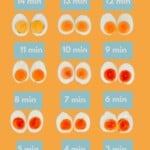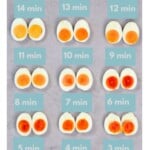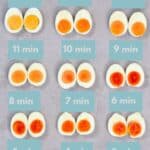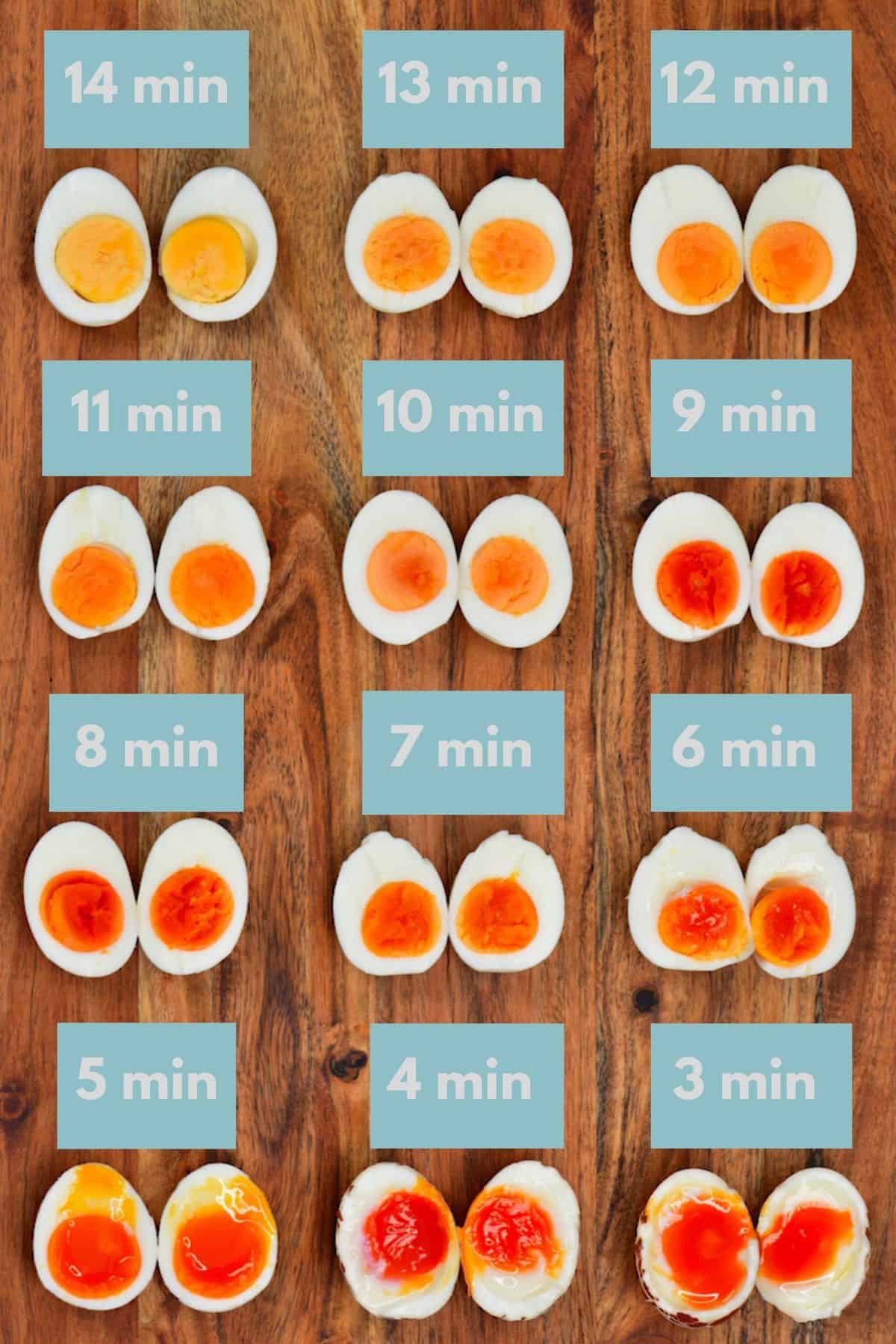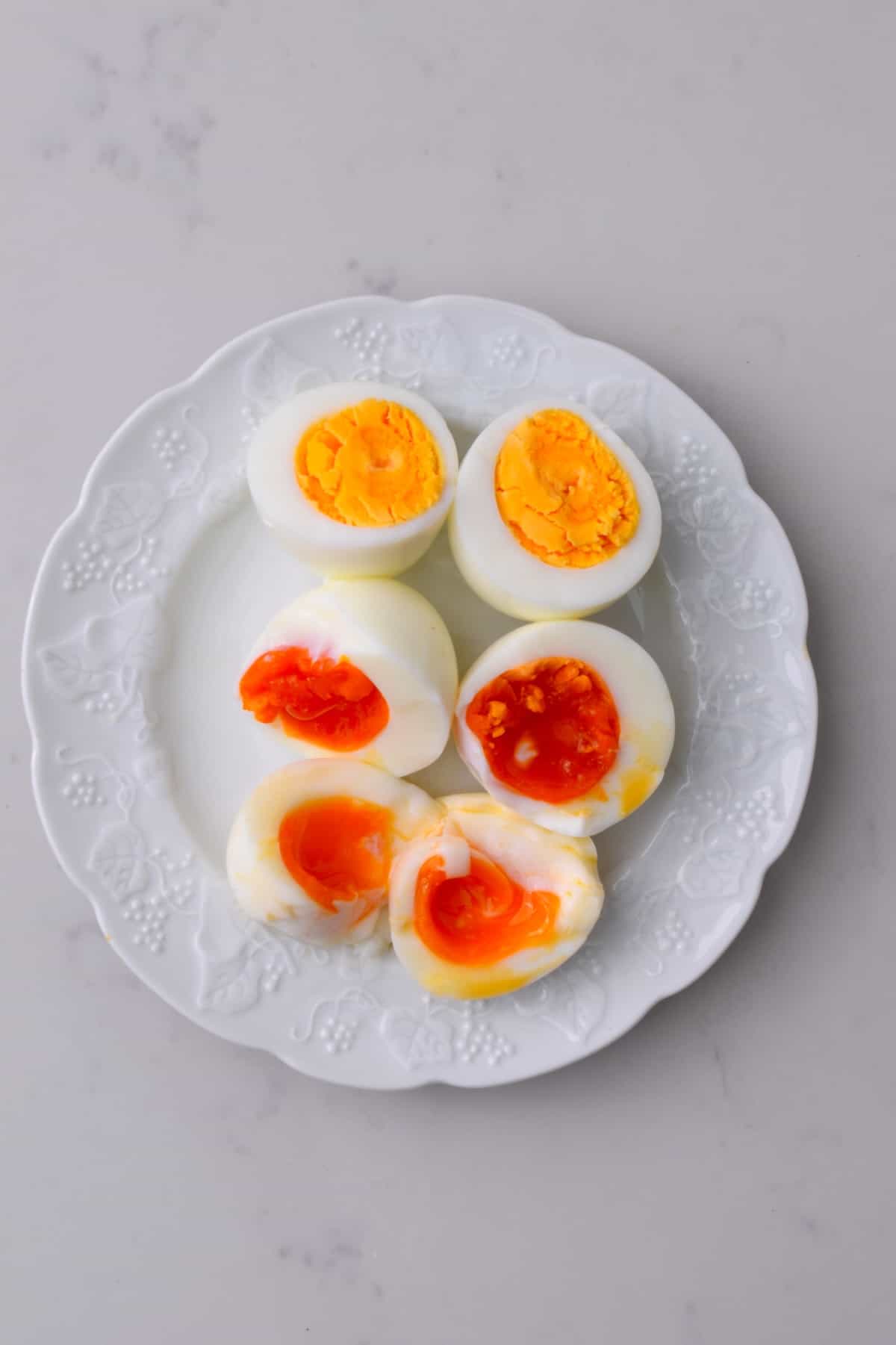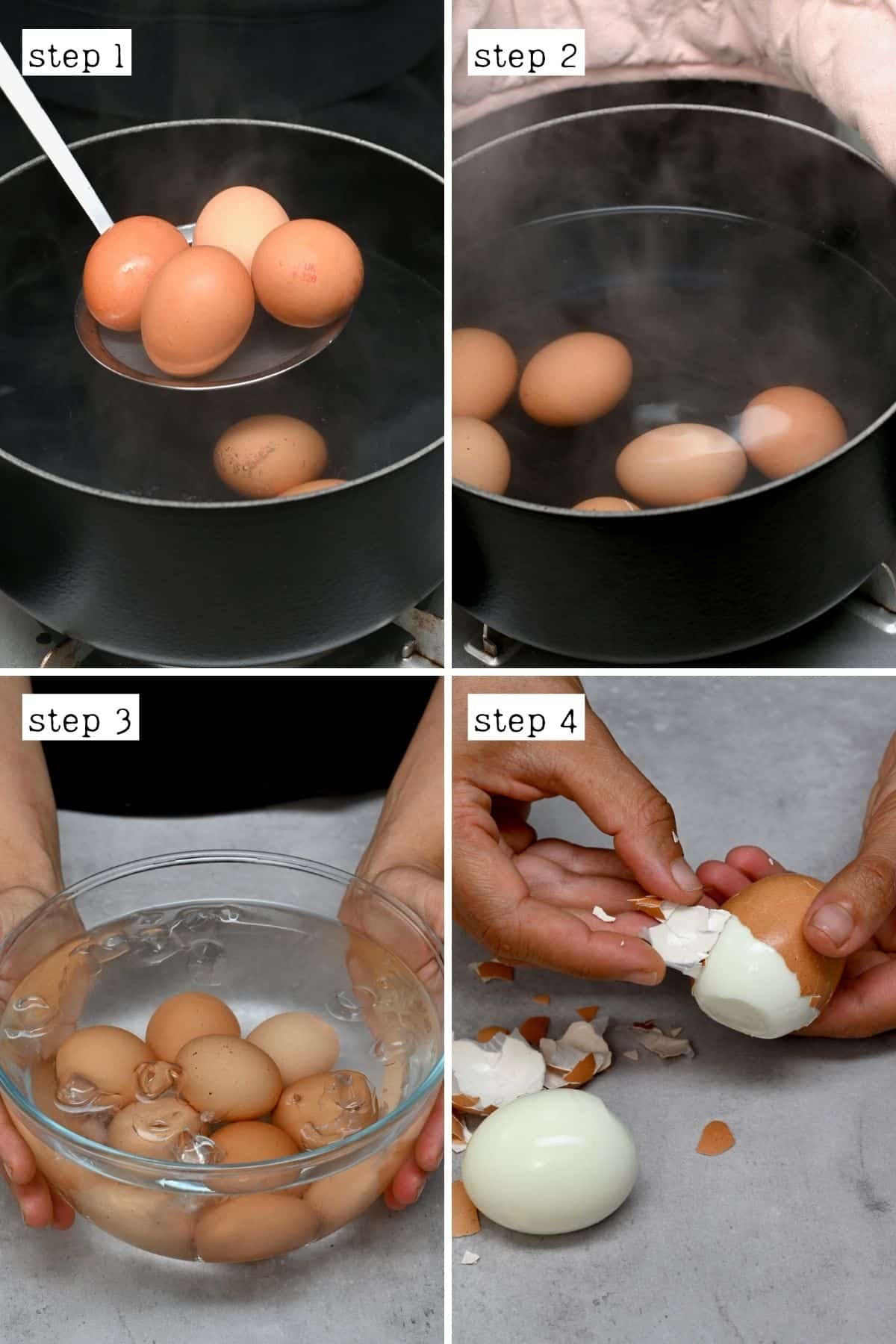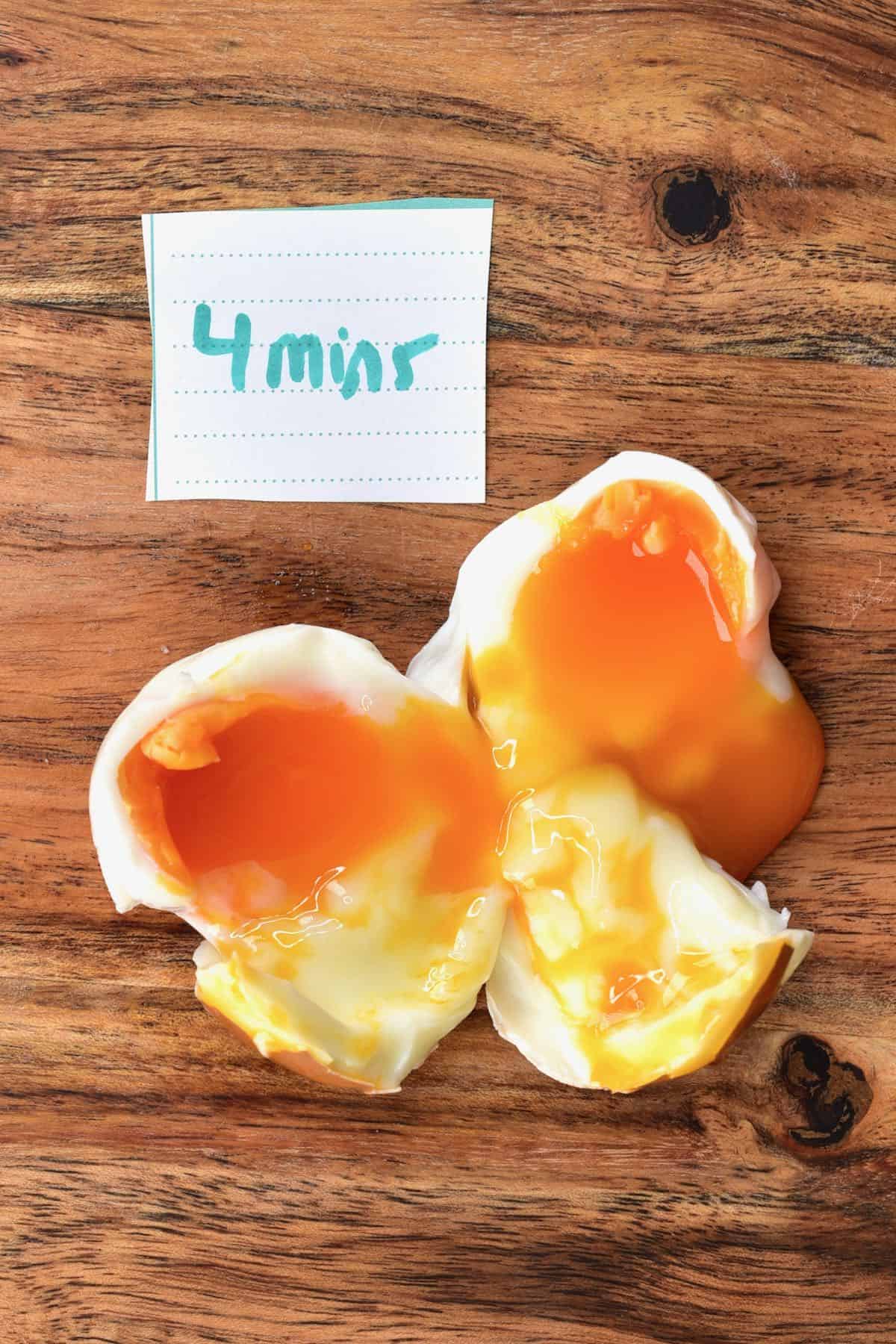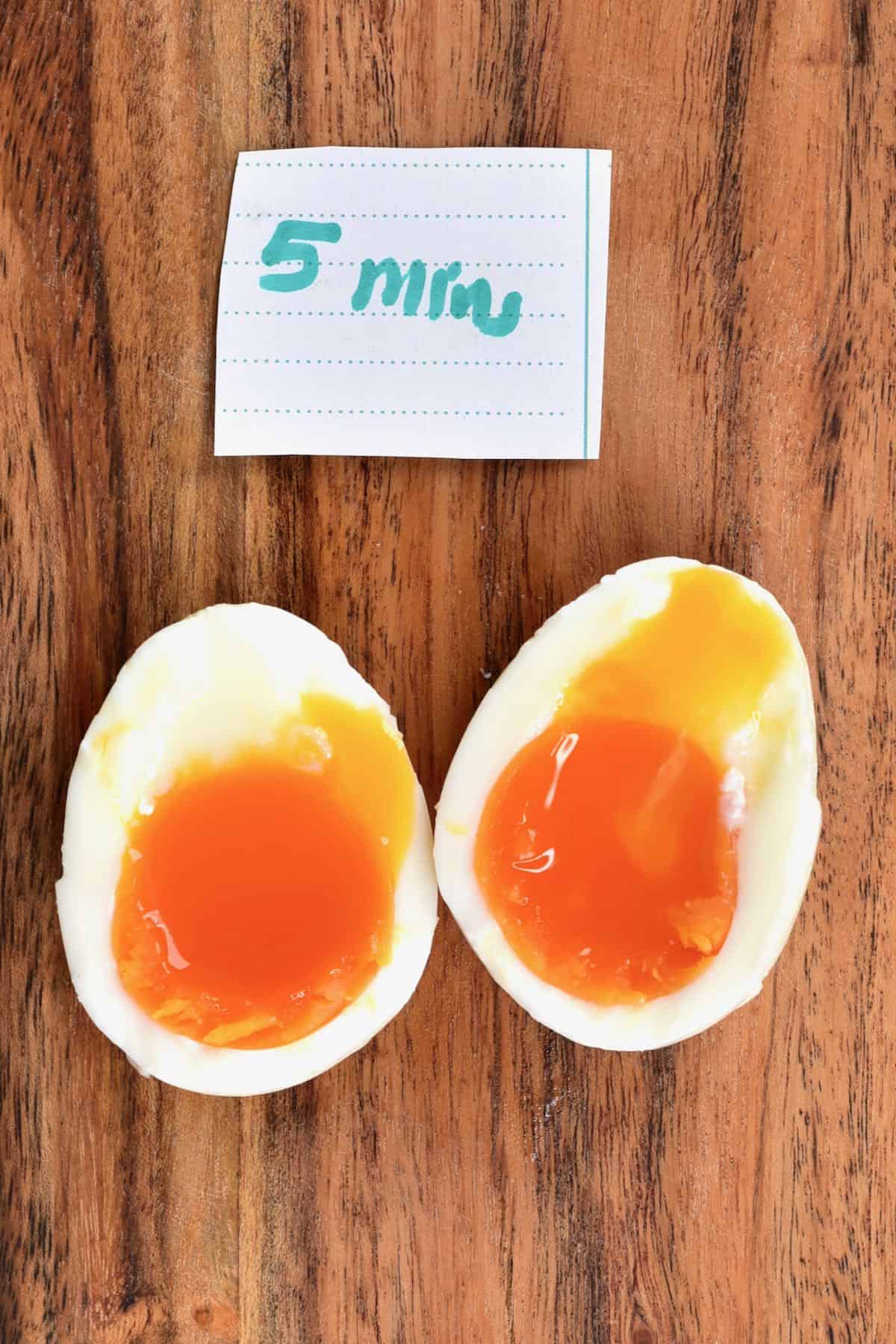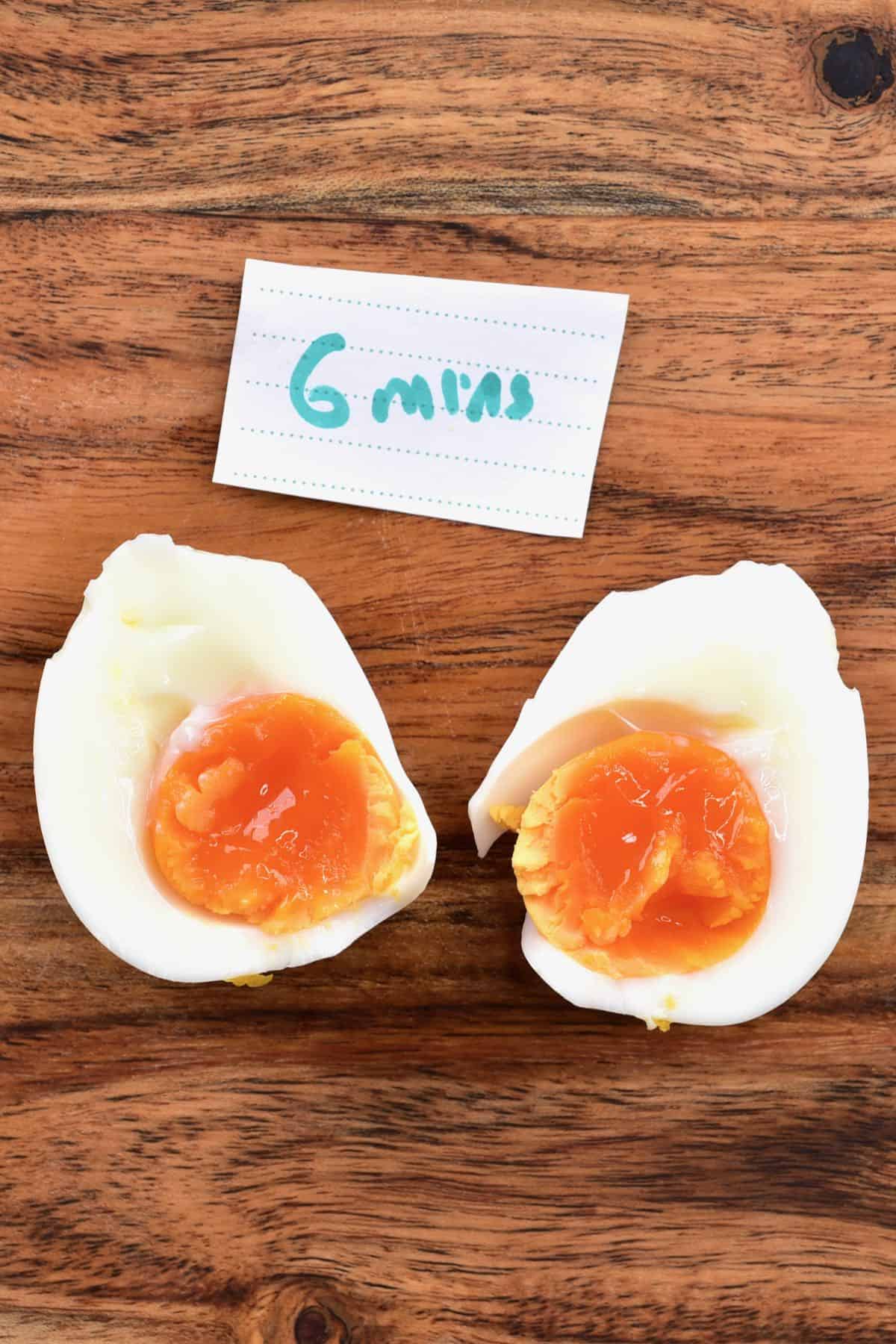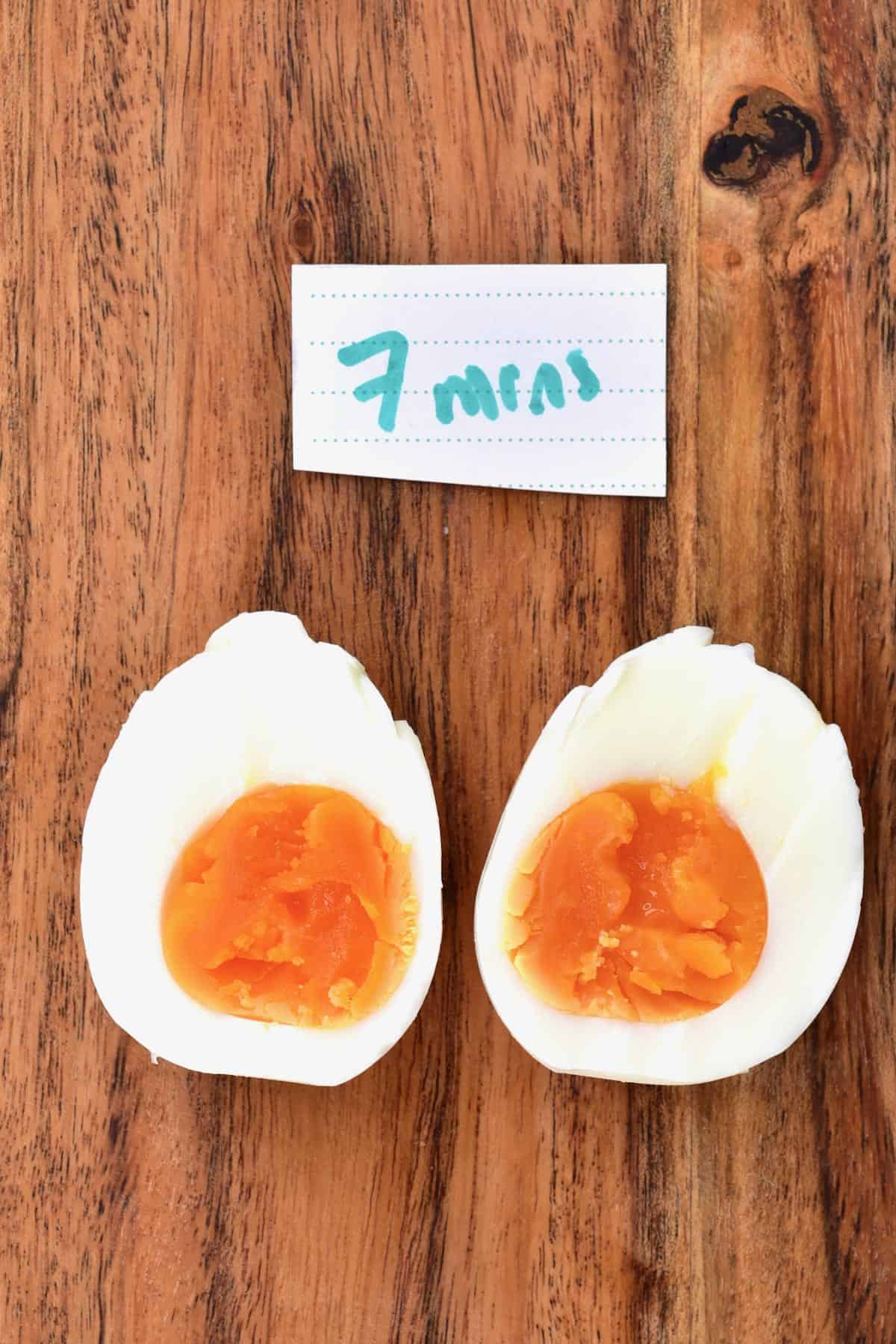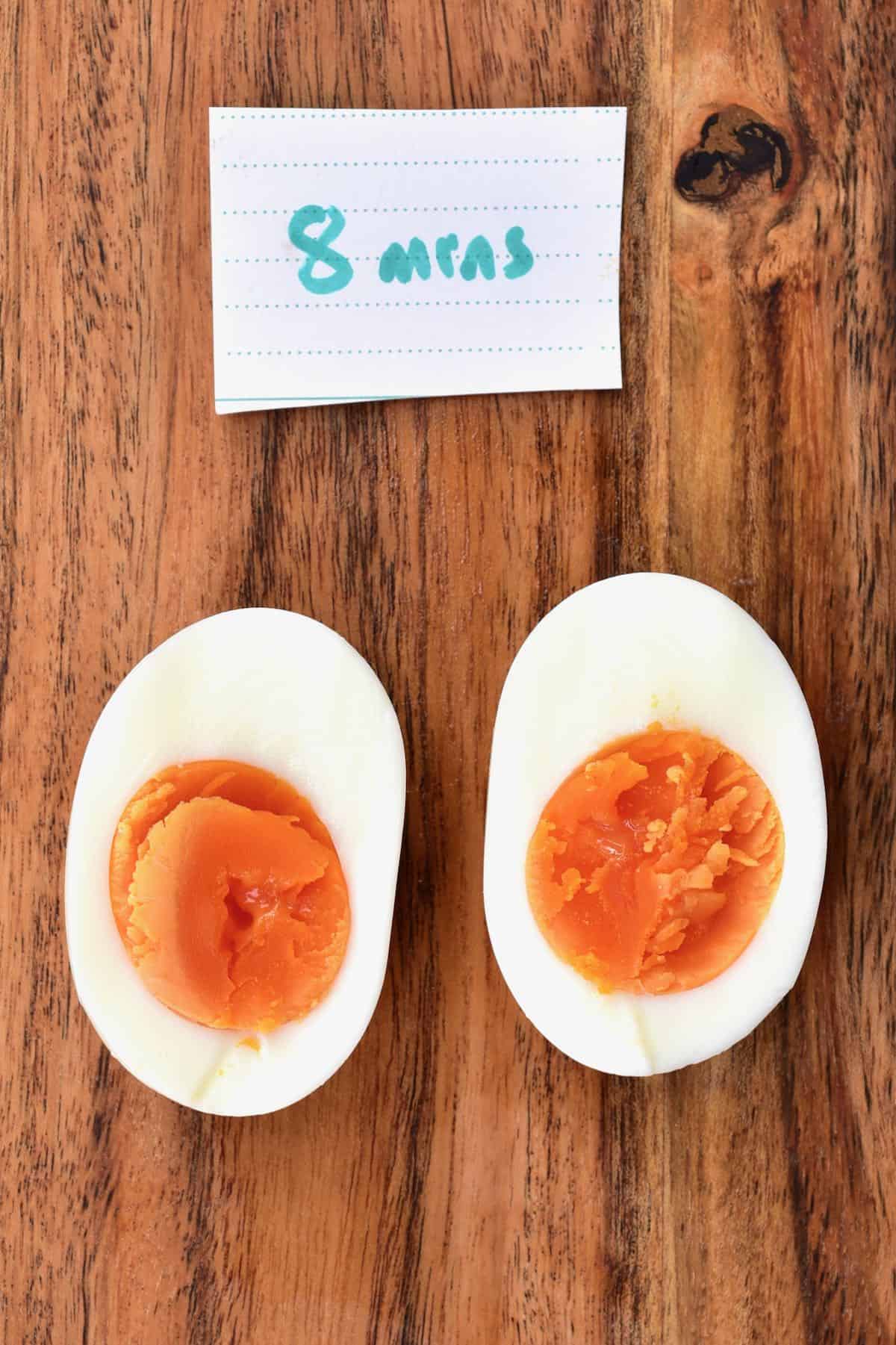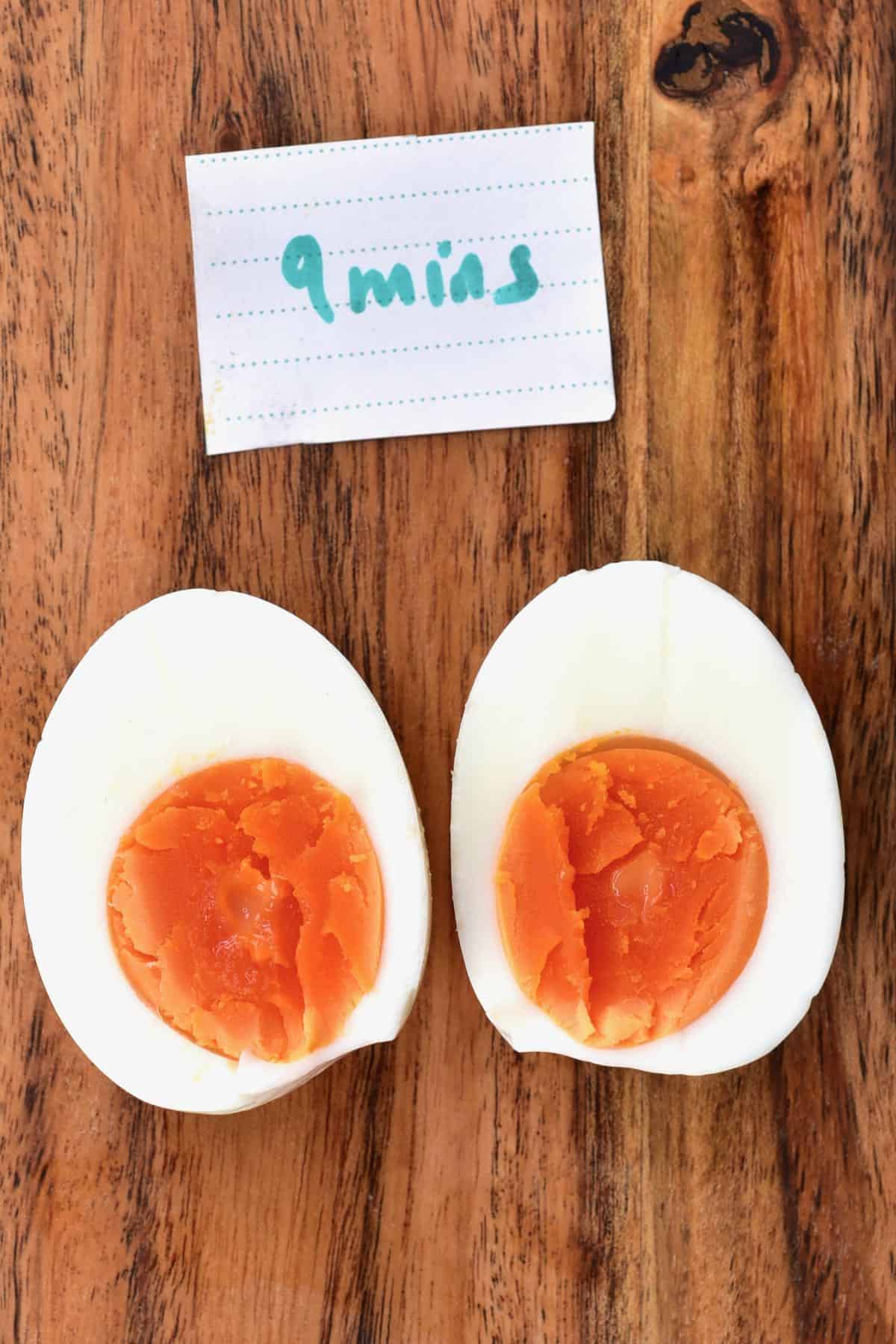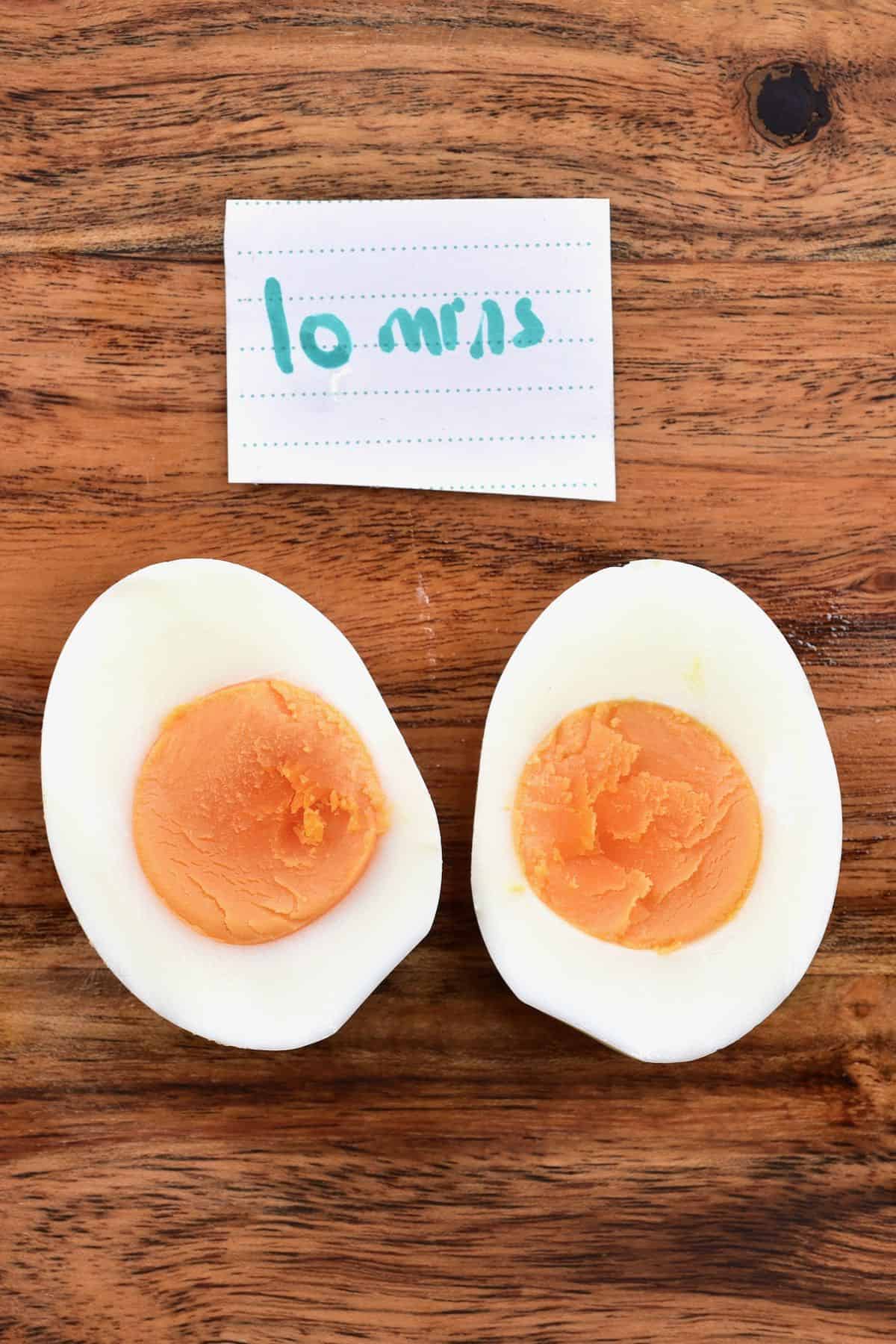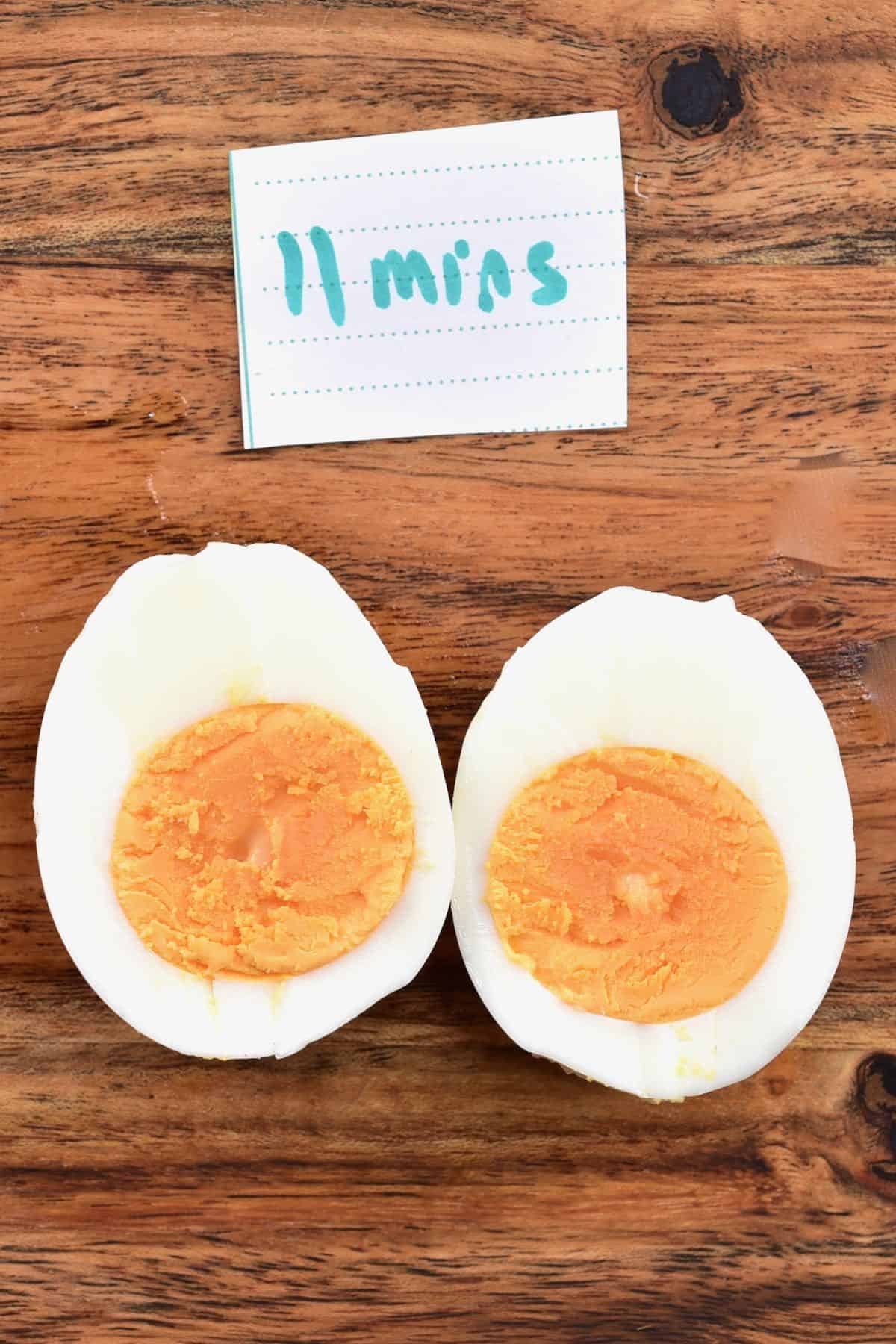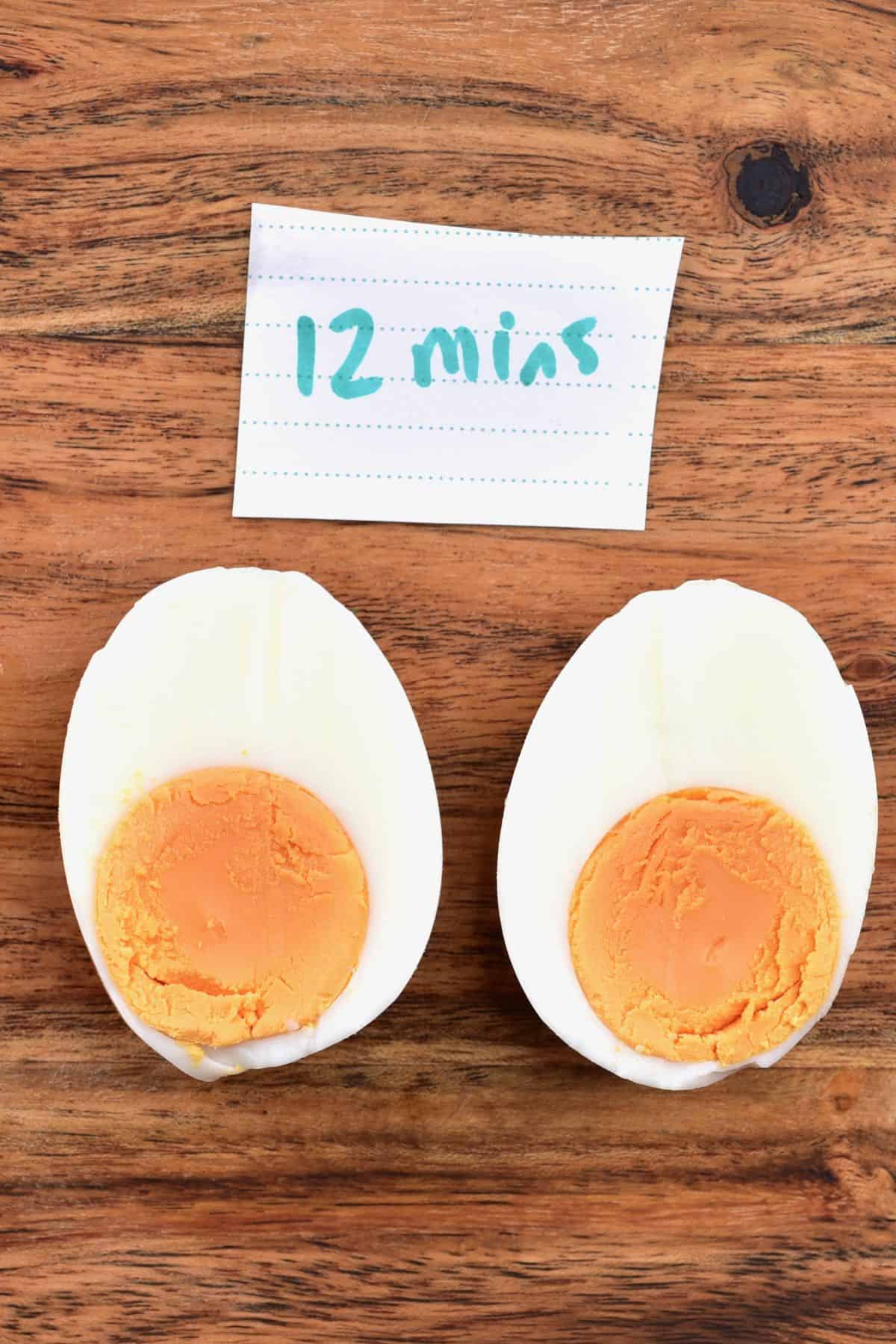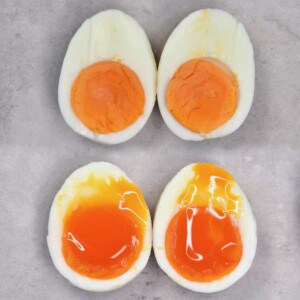To say I have a slight obsession with perfectly boiled eggs may be an understatement. I love them so much that I’ve tested every method I can and have shared recipes for boiled eggs in the air fryer and boiled eggs in the Instant Pot, as well as easy-peel hard-boiled eggs on the stove. This time, though, I’m sharing my preferred method to perfect eggs on the stove – soft, medium, or hard! We’ve probably all struggled to produce the level of boiled egg that we want at one time or another; disappointed when we crack the shell and discover an interior that’s much softer or harder than anticipated. But now, with lots of recipe testing, I’ve discovered a simple, foolproof method and the perfect boiling eggs time, no matter the result you desire. That includes how long you should boil them for soft and runny eggs for dipping toast, jammy eggs for ramen, or hard ones for sandwiches, salads, and deviled eggs. Want to enjoy more simple flavor-packed egg recipes? Check out Italian eggs in purgatory, French baked eggs, North African shakshuka, or Turkish Menemen!
How to boil eggs on the stove
How do you make eggs easier to peel? It’s best to use slightly older eggs to make them easier to peel. Also, gently crack the shells before leaving them to cool. The water will work its way under the shell for easier peeling. Refer to my post for my preferred peeling method and my easy-peel hard-boiled eggs recipe for even more tips.
How long does it take to boil eggs on stove
How long to soft boil eggs?
Within this category, you have everything from barely set whites to perfectly jammy eggs. Just note that if you take less 4 ½ minutes to boil an egg, the egg whites won’t be fully set. Following that:
4 1/2 minutes: The egg whites will be “just” set, with a super runny yolk, 5 minutes: A soft set white with a thick, runny yolk, 6 minutes: A fully set white with a thick, jammy (slightly runny) yolk.
Uses: Soft-boiled eggs excel at making “egg & soldiers” (“dippy egg”) and enjoying in place of poached eggs over avocado toast and anywhere you want to enjoy the runny yolk. Jammy eggs are perfect for ramen, noodles, and grain bowls.
How long to medium boil eggs?
Medium-boiled eggs have tender cooked whites with a creamy but not runny yolk.
7 minutes: Fully set white, thick, and barely runny yolk. 8-9 minutes: The yolk is set but still creamy.
Uses: Medium-boiled eggs are a versatile option you can use in most ways you would use hard-boiled eggs.
How long to hard boil eggs?
10-11 minutes: The yolk is set and only ever so slightly tender. This is the typical time for hard-boiled eggs. 12-13 minutes: The yolks are fully set around 11 minutes (my preferred time) but become lighter and more crumbly if cooked slightly longer. I usually don’t boil them for any longer than 12 minutes.
Don’t cook them for any longer than 14 minutes, or you risk rubbery egg whites, dry and chalky yolk, and a green-gray ring around the yolks. I also have a separate post on perfectly cooked, easy peel hard-boiled eggs with a slightly different cooking method. Uses: A perfect hard-boiled egg is a versatile protein, perfect for salads, making egg salad, deviled eggs, Scotch eggs, as a snack (with salt & pepper), and more.
Factors that affect the boiling time of eggs
Egg size: I used medium eggs (1.95-2.12 oz/55-60g). If you plan to use large eggs, add a minute to the egg cooking time. For extra-large eggs, add a further 30 seconds. Egg temperature: It’s best to use room-temperature eggs, though if they come directly from the fridge, temper them first by placing them under warm water for 20-30 seconds. Using them straight from the fridge requires further time tweaks. The altitude: For those living at high altitudes, it can take 10-15% more time to boil eggs. Adust the eggs’ cooking time accordingly. The saucepan and batch size: Both can affect water temperature. Note that if you’re making 6 or fewer eggs, they must be covered by an inch of water. For more than 6 eggs, ensure they’re covered by at least 2 inches of water. The exact stove temperature: The exact temperature may vary from stove to stove, so it can affect the end results somewhat.
I highly recommend cooking a batch of 3-4 “practice eggs,” taking them out in 30-second intervals based on your desired doneness, so you can tweak the timings specifically to your preference.
More simple egg recipes
How to Poach Eggs (+ Top Tips) How to Pasteurize Eggs (3 Ways) Simple Soy-Marinated Ramen Eggs How to Separate Egg Whites and Yolks
If you use this guide, let me know how it goes in the comments below. I’d appreciate a recipe card rating and would love to see your recipe recreations – tag me on Instagram @Alphafoodie!

